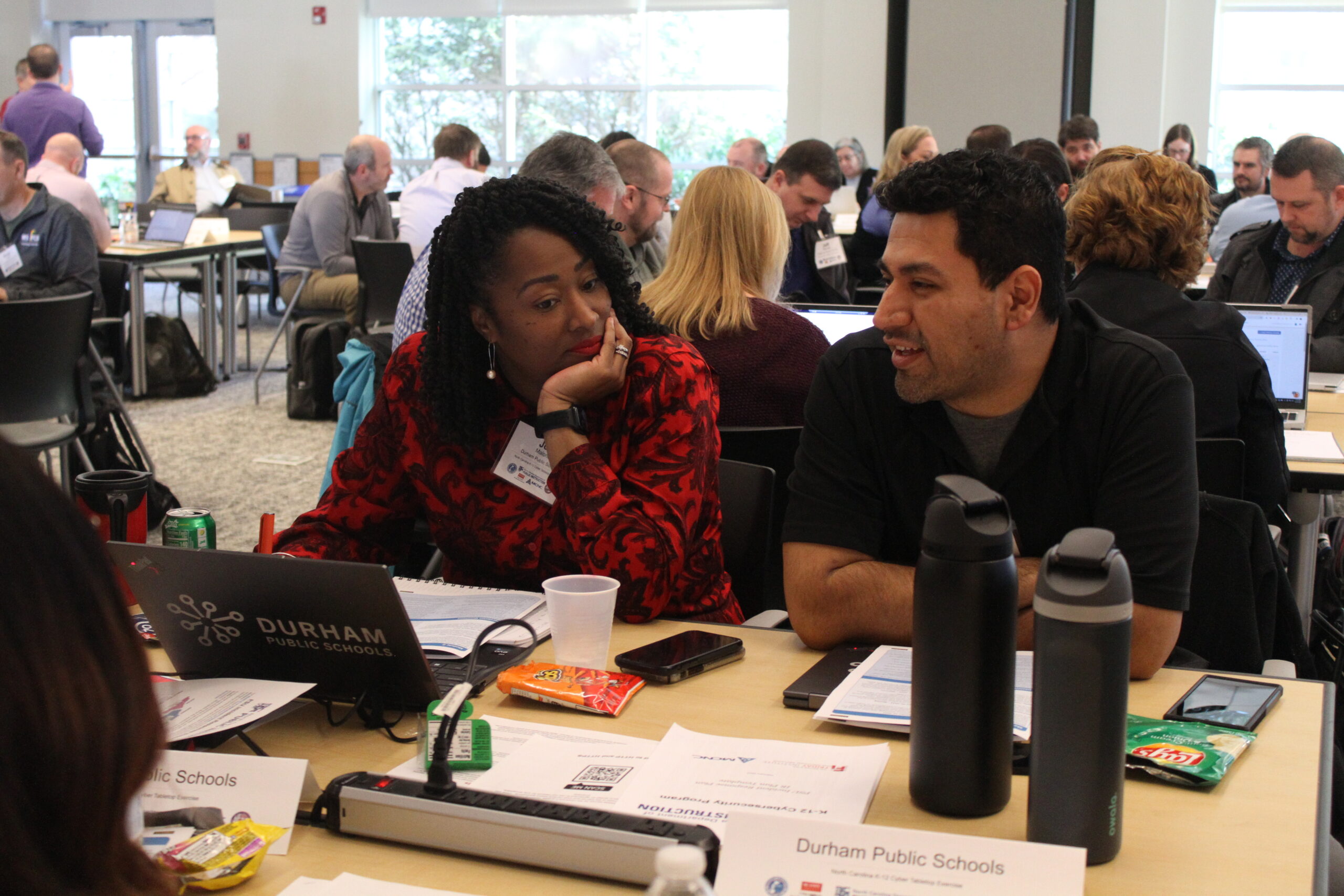Overcoming Obstacles in Mathematics Learning by Using Video Games
May 1, 2012—Real world application of mathematics concepts leads to understanding and academic success. This environment can be replicated with the use of video games and a ‘learning by doing’ practice. Overcoming obstacles in mathematics learning was the theme of the 2012 Joseph D. Moore Lecture presented by Dr. Keith Devlin on April 26 at the Friday Institute for Educational Innovation.
Devlin is the co-founder and Executive Director of Stanford University’s H-STAR institute, a co-founder of the Stanford Media X research network and a Senior Researcher at CSLI, the Stanford Center for the Study of Language and Information.
“Dr. Devlin has made discoveries in mathematics open to everyone and has inspired incredible numbers of students to enter the field,” said Dr. Jere Confrey, Joseph D. Moore Distinguished Professor at NC State University, and FI Senior Research Fellow. “He is the kind of mathematician who invites one into the field rather than acting as a guardian of the castle.”
Marking the lecture as “essentially a talk about product design,” Devlin outlined the principles that lead to the products’ design choices. Based initially on multiplayer online games exemplified by the popular “World of Warcraft,” Devlin and his team formed a company to develop a suite of applications that focused on mathematics abilities for the middle school level.
According to Devlin, video games give you the potential to attend to four major obstacles to effective mathematics learning: the ‘symbol’ barrier, the difficulties of grasping mathematics concepts when written out in numeric problems versus real world application; transfer problem, the mastery of numeric symbol to real world application; engagement, keeping students actively involved throughout the learning; and meaning and motivation, being able to apply the concepts effectively as the problems increase in difficulty.
“The goal was to create a mathematics product that was transformative to learning,” said Devlin. “Math is not intrinsically about symbols. It is a way of thinking. It is something you do. What is the best way to learn how to do something? Just do it!”
Devlin and his team did not set out to build a single all-encompassing game environment, but rather a series of applications for smart phones, tablets and laptops for use at home in a casual environment base that has a mathematical component. This is to supplement learning in the classroom and to be used socially with family and friends.
Click here for more information on Dr. Devlin’s work.
- Categories:


